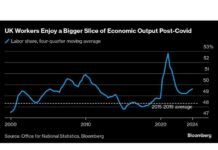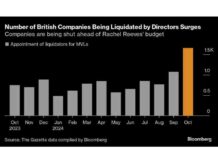Global corporate borrowing reached a record high of $8 trillion in 2024, signaling a significant shift in the financial landscape. This unprecedented level of borrowing has implications for economies worldwide and could potentially impact businesses, consumers, and investors alike.
What Led to the Surge in Corporate Borrowing?
The surge in corporate borrowing can be attributed to a variety of factors, including low interest rates, increased investor confidence, and a growing demand for capital investment. Companies are taking advantage of favorable market conditions to raise funds for expansion, innovation, and strategic initiatives.
Implications for the Global Economy
The record-breaking levels of corporate borrowing have raised concerns among economists and policymakers about the potential risks and challenges it may pose to the global economy. Excessive debt levels could lead to financial instability, market volatility, and a heightened risk of default, which could have far-reaching consequences for businesses and consumers worldwide.
Expert Insights on the Situation
According to financial experts, the surge in corporate borrowing reflects a growing appetite for risk among businesses seeking to capitalize on market opportunities. While access to capital is essential for growth and innovation, experts caution that companies must exercise prudence and sound financial management to avoid overleveraging and potential financial distress.
The Road Ahead
As global corporate borrowing continues to reach new heights, it is crucial for businesses, investors, and policymakers to closely monitor the situation and take proactive measures to mitigate risks and ensure financial stability. By fostering transparency, accountability, and responsible borrowing practices, stakeholders can navigate the evolving financial landscape with confidence and resilience.
In conclusion, the record $8 trillion global corporate borrowing in 2024 underscores the dynamic nature of the financial markets and the importance of prudent financial management in a rapidly changing world. As businesses navigate the complexities of borrowing and investment, it is essential to prioritize long-term sustainability and resilience to thrive in an increasingly interconnected global economy.






















